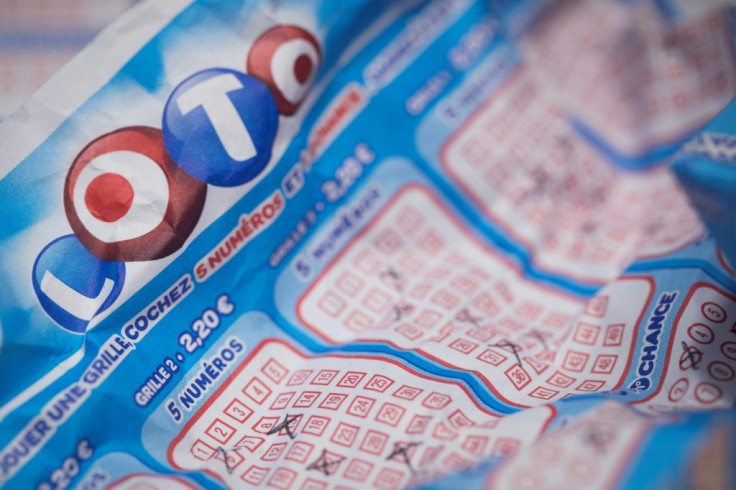France's Lottery Company Shifts To Private Hands
French lottery monopoly Francaise des Jeux, state-owned since its creation nearly a century ago, will pass to private hands when millions of shares go on sale Thursday.
Hoping to raise over a billion euros ($1.1 billion), the French government will slash its stake in FDJ from 72 percent to about 20 percent, and hopes to put as many shares as possible in the hands of individuals.
The FDJ holds a monopoly on lottery games, scratchcards and non-online sports betting. It is the second biggest betting company in Europe and fourth in the world.
The move to offload a rare money-making state enterprise has been criticised by opposition parties as tantamount to selling off "the family jewels".
For the government, it is a win-win.
In addition to raising a billion euros in cash, the state will benefit from a yearly public contribution of about 3.5 billion euros, and 380 million euros in payment due for the FDJ's 25-year licence.
The FDJ has 200,000 shares. Of the 28 percent not held by the state, 13.4 percent is owned by veterans' organisations, and some by employees.
The existing shares will see their nominal value divided by 955 ahead of listing, to increase their number to 191 million and make them cheaper.
In a interview with the daily Le Parisien late Wednesday, Economy Minister Bruno Le Maire said the so-called subscription price of the shares had been set at a range of 16.50-19.90 euros ($18.30-22.00).
"Subscription opens on November 7 and will run until November 19 for individual investors," Le Maire said.
With close to 100 million shares going on sale, the subscription price would raise between 1.6-2.0 billion euros for the state and value the company at up to 3.8 billion euros in total, according to AFP calculations.
In order to attract as many small shareholders as possible, they would be offered a two percent discount on the purchase price, as well as one free share for every 10 shares bought up to a maximum limit of 5,000 euros' worth of shares purchased, the minister said.
France is one of few countries to enable such investment opportunities for individuals. Would-be investors in most other countries have to wait for the first day of public trading, competing for stocks with professionals.

Prime Minister Edouard Philippe's government has vowed to privatise a number of entities, including the Groupe ADP airports company and energy company Engie, to feed a 10-billion euro fund to kickstart technological innovation.
The FDJ is the first to go, after parliament agreed.
Previous French governments, left and right, have sold stakes in state enterprises as they needed money -- including France Telecom (which became Orange), electricity provider EDF, banks Paribas and Credit Lyonais, national carrier Air France, petroleum giant Total, and carmaker Renault.
But private individuals in France are not easily tempted by the market, influenced in part by the fact that EDF and France Telecom shares are worth less today than when they were sold in 2005 and 1997 respectively.
The number of non-professional shareholders in France fell from about nine million in the 2000s to some three million today.
"The Francaise des Jeux is a good hook" to get people interested in the stock market again, "as its activity is easy to understand and fairly predictable," said Stephane Boujnah, chairman of the managing board of pan-European stock exchange Euronext.
Last year, some 25 million clients spent almost 16 billion euros on bets -- an increase of 4.4 percent year-on-year and of almost a third over four years.
The FDJ's predecessor, a national lottery, was born in 1933 to help soldiers wounded and disfigured in World War I and farmers going through tough times.
Critics have warned that a lesser state role in the company could leave gamblers vulnerable to corporate greed.
"To boost revenue, one must boost spending on bets," said Jean-Michel Costes, secretary general of gaming watchdog Observatoire des Jeux.
"The profit motive and the need to protect betters from addiction are in direct competition" for FDJ, he warned.
burs-mlr/spm/har
© Copyright AFP 2024. All rights reserved.











